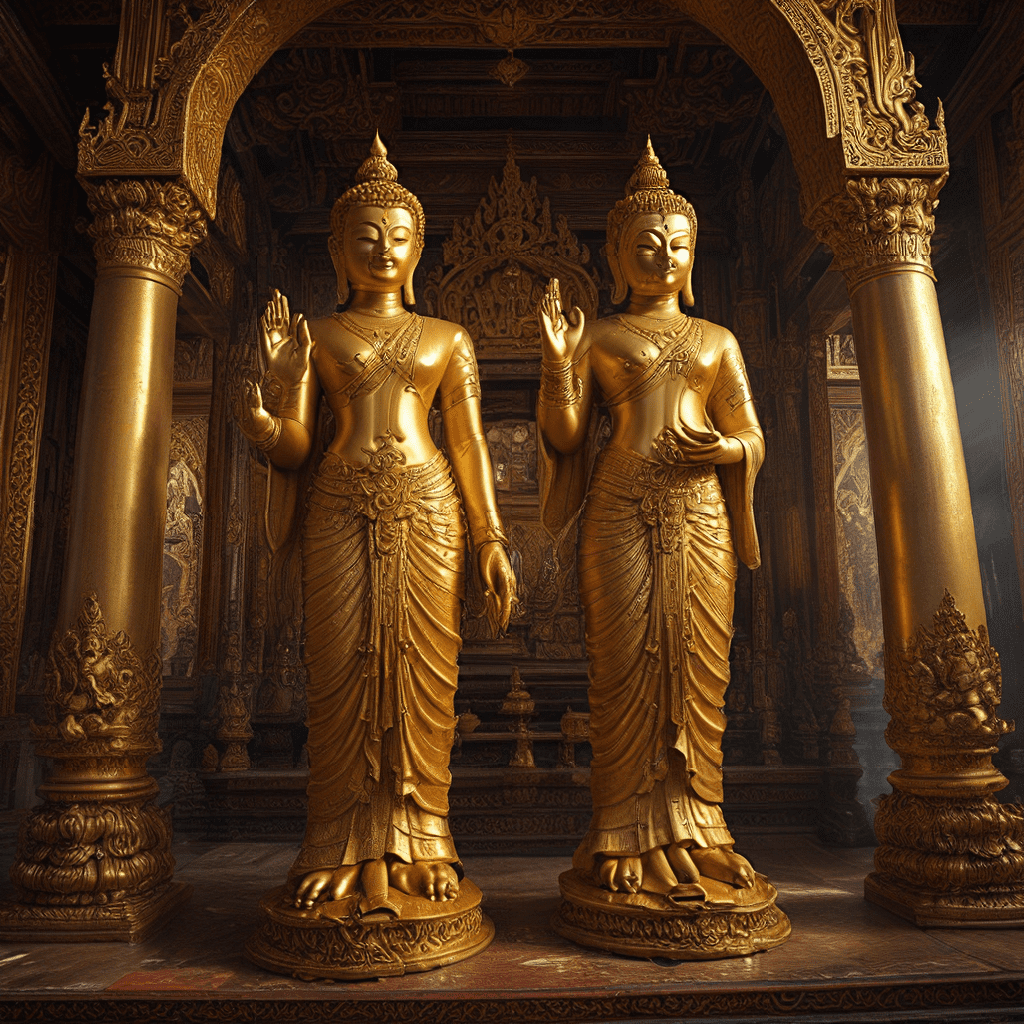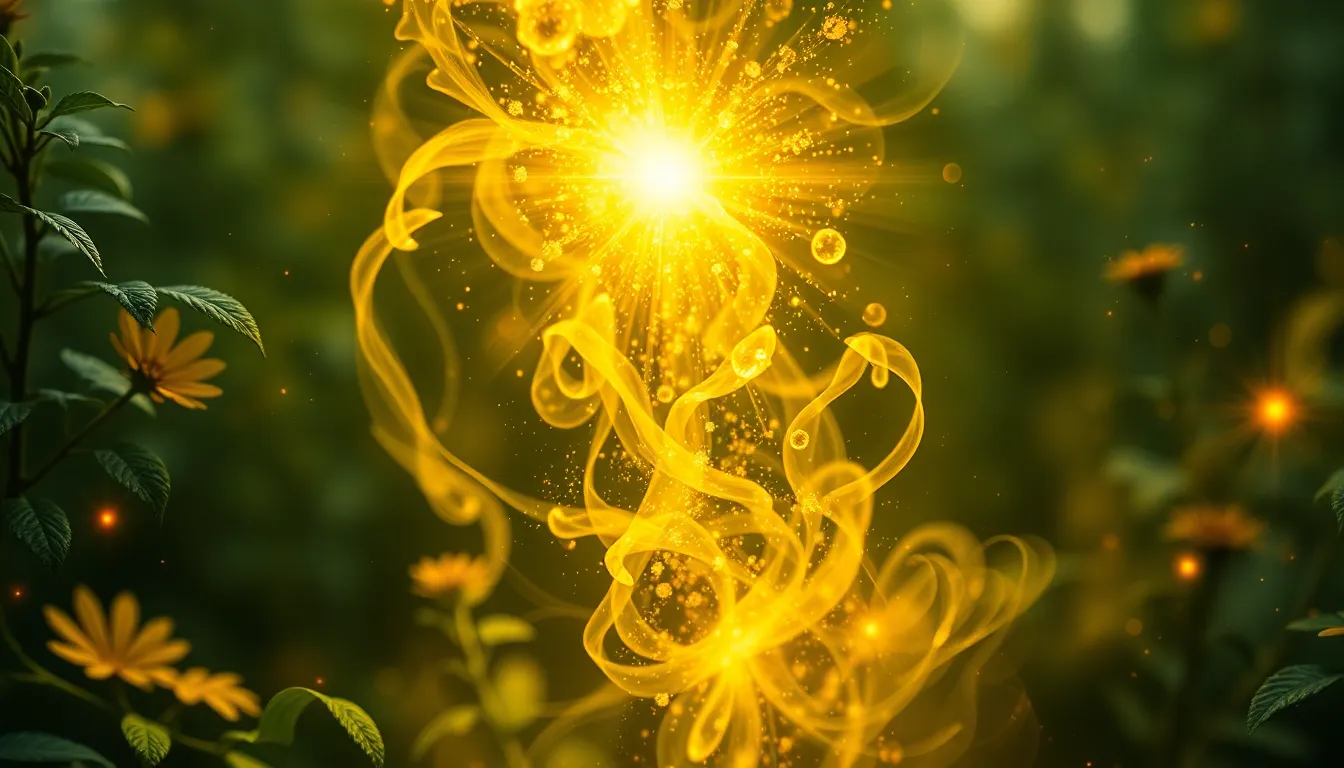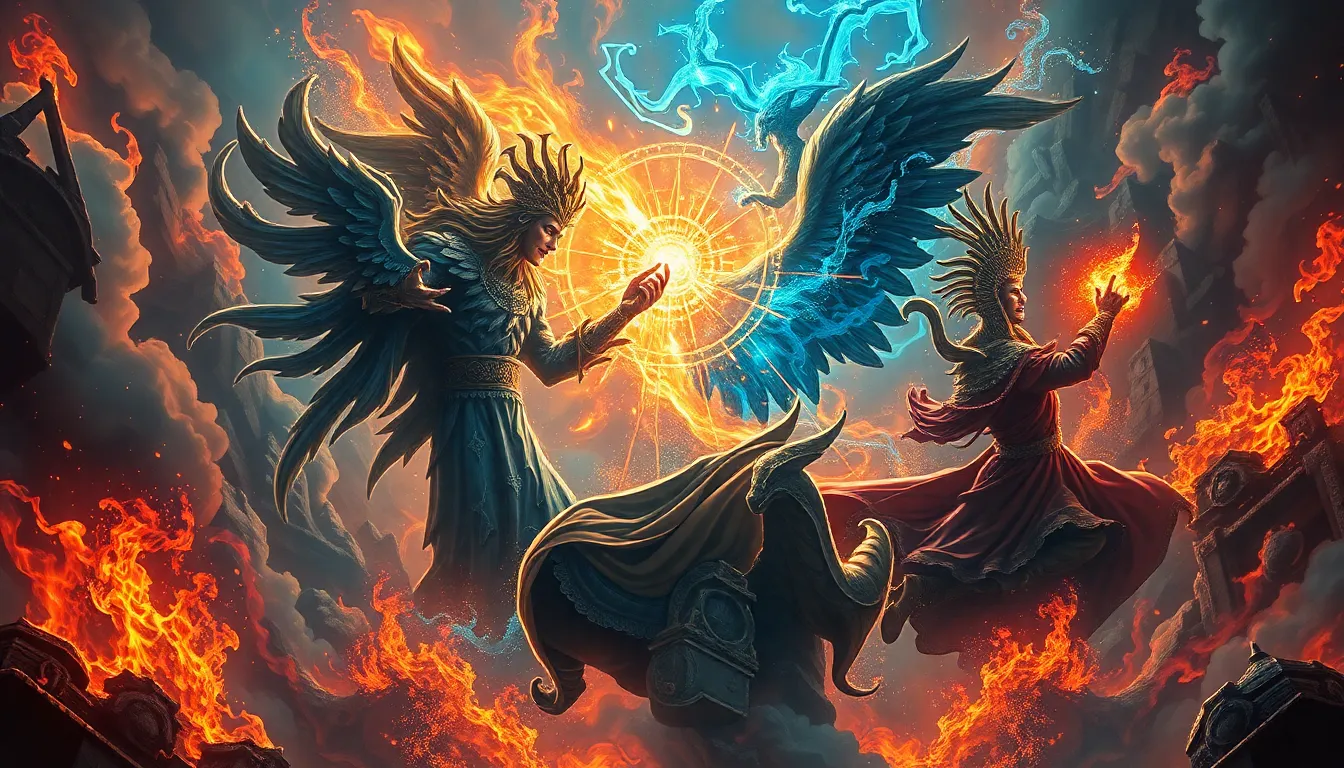The Influence of Buddhism on Thai Mythological Beliefs
Thailand's rich tapestry of mythology is a fascinating blend of ancient beliefs and the profound influence of Buddhism. This fusion has resulted in a unique mythology that reflects the country's spiritual history and cultural identity. The journey of Thai mythology is a story of adaptation, assimilation, and continuous evolution, shaping the way Thais perceive the world and their place in it.
The Pre-Buddhist Pantheon of Thailand
Before the arrival of Buddhism, Thailand's beliefs were rooted in animism and reverence for nature. The ancient Thais, like many other indigenous cultures, believed that spirits inhabited all things, from trees and rivers to mountains and rocks. These spirits, known as "phi," were believed to possess the power to influence human lives, and they were often appeased through rituals and offerings. This ancient system of beliefs formed the foundation of Thai mythology.
– Ancient Spirits and Deities:
Among the most prominent spirits in pre-Buddhist Thailand were the "phi taek," spirits associated with specific locations like trees and houses. These spirits were often seen as protectors, but they could also become malevolent if angered. A belief in "phi prai," spirits of the deceased, also played a significant role. These spirits were believed to linger in the world of the living and could influence the well-being of their families and communities.
– The Significance of Nature Worship:
Nature held immense significance in pre-Buddhist Thailand. Natural elements like the sun, moon, stars, and the four elements (earth, water, fire, and air) were often deified. This reverence for nature was deeply intertwined with the belief system, and it extended to mountains, rivers, and forests, which were seen as dwelling places for powerful spirits.
The Arrival of Buddhism and its Impact
The arrival of Buddhism in Thailand around the 3rd century B.C.E. marked a turning point in Thai mythology. While existing beliefs weren't entirely eradicated, they were gradually integrated into the Buddhist framework. This process of adaptation led to a unique blend of traditional beliefs and Buddhist principles.
– The Assimilation of Buddhist Concepts:
Buddhist concepts like karma, reincarnation, and liberation (nirvana) were gradually absorbed into Thai beliefs. The idea of karma, the law of cause and effect, resonated deeply with the existing belief in the consequences of actions. The concept of reincarnation, the cycle of birth, death, and rebirth, offered a framework for understanding the afterlife and the spiritual journey.
– The Transformation of Existing Beliefs:
The arrival of Buddhism gradually transformed pre-Buddhist beliefs. The worship of spirits continued, but within a Buddhist context. Spirits were often seen as beings bound to the cycle of karma and rebirth, deserving of compassion and understanding. The emphasis shifted from appeasing spirits to cultivating merit and striving for enlightenment.
The Emergence of a Syncretic Mythology
The fusion of pre-Buddhist beliefs and Buddhist principles resulted in a unique mythology that is distinctly Thai. This syncretic mythology embraces both the ancient reverence for nature spirits and the profound wisdom of Buddhist teachings. This blend of beliefs has shaped the Thai worldview, influencing their understanding of the universe and their place within it.
– The Buddhist Influence on the Thai Creation Myth:
One example of the Buddhist influence on Thai mythology is the creation myth. In pre-Buddhist Thailand, the creation of the world was attributed to various deities and spirits. However, with the arrival of Buddhism, the creation story was reinterpreted through a Buddhist lens. It's believed that the world was created by Brahma, a figure who is venerated in both Hinduism and Buddhism, symbolizing the creative force of the universe. This reinterpretation reflects the assimilation of Buddhist concepts into Thai mythology.
– The Role of Karma and Reincarnation in Thai Mythology:
The concepts of karma and reincarnation, central to Buddhism, play a significant role in Thai mythology. Karma, the law of cause and effect, shapes the destiny of individuals and spirits. Good deeds lead to favorable outcomes in this life and the next, while bad deeds create suffering. Reincarnation, the cycle of rebirth, offers hope and a framework for understanding the complexities of life. Spirits and individuals are believed to be reborn until they achieve enlightenment and break free from the cycle of suffering. This belief system encourages ethical behavior and motivates individuals to strive for spiritual growth.
Key Figures in Thai Mythology and their Buddhist Echoes
The integration of Buddhism into Thai mythology also influenced the development of key figures in Thai folklore. Some figures were reinterpreted, while others emerged entirely within the Buddhist context. These figures represent the blending of pre-Buddhist beliefs with Buddhist principles, further highlighting the uniquely Thai nature of the mythology.
– The Transformation of the God Indra:
Indra, a powerful god in Hinduism, became an important figure in Thai mythology, though his role was significantly reinterpreted. In Buddhism, Indra is often portrayed as a guardian deity and a protector of Buddhism. Thai mythology embraces this depiction while also incorporating elements from pre-Buddhist beliefs. Indra is often seen as a king of the gods, residing in the heaven realm, and his powers extend over both the human and spiritual realms. This reinterpretation reflects the syncretic nature of Thai mythology, where pre-Buddhist beliefs are integrated within a Buddhist framework.
– The Emergence of the Bodhisattava:
The Bodhisattava, a central figure in Mahayana Buddhism, also emerged as a significant figure in Thai mythology. Bodhisattvas are enlightened beings who have chosen to postpone their own liberation to help others reach enlightenment. They are often portrayed with great compassion and wisdom, offering guidance and support on the spiritual path. The Bodhisattava's role in Thai mythology emphasizes the importance of compassion and selfless service. They serve as role models and inspire individuals to strive for enlightenment not only for themselves but also for the benefit of all beings.
Theoretical Frameworks for Understanding the Influence
Understanding the influence of Buddhism on Thai mythology requires examining the theoretical frameworks that explain cultural adaptation and syncretism. These frameworks provide valuable insights into the process by which different belief systems interact and blend, shaping the unique cultural landscape of a society.
– The Theory of Syncretism:
Syncretism refers to the blending of different religious or cultural beliefs, creating a unique new system. This theory helps explain how pre-Buddhist beliefs in Thailand were assimilated into the Buddhist framework, creating a distinct mythology that incorporated elements of both systems. The syncretic nature of Thai mythology is evident in the coexistence of spirit worship with Buddhist principles, demonstrating the fusion of different belief systems.
– The Theory of Cultural Adaptation:
Cultural adaptation refers to the process by which individuals and societies adjust their beliefs and practices to fit into a new cultural environment. This theory highlights how the arrival of Buddhism in Thailand led to the adaptation of pre-existing beliefs and rituals within a Buddhist context. The assimilation of Buddhist concepts like karma and reincarnation, along with the reinterpretation of deities like Indra, exemplifies the process of cultural adaptation.
FAQ
Q: What is the significance of Thai mythology in modern times?
A: Thai mythology continues to play a significant role in contemporary Thai society. It influences art, literature, music, and festivals, providing cultural identity and a sense of continuity. The belief in spirits and the importance of merit-making are still prevalent, particularly in rural communities.
Q: Why is Thai mythology considered unique?
A: Thai mythology is unique due to its syncretic nature, blending pre-Buddhist beliefs with Buddhist principles. This fusion has resulted in a rich and complex mythology that reflects the country's unique cultural history and spiritual landscape.
Q: How does Thai mythology influence everyday life?
A: Thai mythology influences everyday life in various ways. People may offer food to spirits at shrines, participate in rituals to appease spirits, or seek blessings from monks. The belief in karma and the consequences of actions motivates ethical behavior, while the concept of reincarnation offers comfort and hope.



